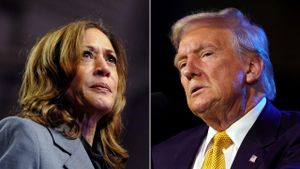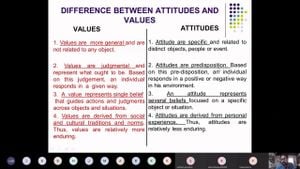A series of unsettling incidents has characterized Vice President Kamala Harris's campaign trail, culminating with troubling violence directed at her campaign office. This grim backdrop, combined with internal party discord over her handling of pivotal issues like transgender rights, has amplified scrutiny on her leadership as the 2024 election cycles intensify.
Most recently, Harris's campaign office shared with the Democratic Party in Tempe, Arizona, was shot at for the third time within just weeks, prompting renewed concerns over political violence. According to the Tempe Police Department, the latest incident occurred between midnight and 1 a.m., echoing the timing of previous attacks, none of which resulted in injuries but have left the office damaged. Authorities are now investigating the shootings, offering up to $1,000 for information leading to the arrest of suspects involved.
The spate of gunfire at the campaign office is part of broader alarming trends across the country, as law enforcement agencies grapple with rising political violence. Just after the second shooting on September 23, police stated they were implementing additional safety measures for staff and the surrounding area. The motive behind these attacks remains unclear, but it’s undeniable they add pressure to Harris's already tumultuous campaign.
Adding to her challenges is the growing feud within the Democratic Party over her responses to attacks from the Republican camp, particularly concerning transgender rights. During the campaign, Donald Trump’s team launched ads targeting Harris's stance on transgender operations, effectively painting her as disconnected from the concerns of everyday voters.
Democratic insiders have expressed their frustrations over what they view as Harris’s inadequate reaction to critics; many believe her silence allowed Republicans to control the narrative. Former Pennsylvania Governor Ed Rendell, who once chaired the Democratic National Committee, criticized the Harris campaign's failure to respond to these ads.
“Malpractice was committed by the campaign,” Rendell remarked, reflecting on his attempts to push advisers to counter Trump’s messages. He noted how the ads got substantial airtime and questioned why the campaign remained silent.
Republican operatives strategically exploited the issue of transgender rights, creating messaging meant to resonate with working-class voters facing economic hardship. One ad even juxtaposed Harris’s purported agenda with economic concerns, stating: "Kamala is for they/them. President Trump is for you." This targeted messaging reportedly swayed voters toward the Trump campaign, giving the GOP a two-point advantage.
Despite the backlash and internecine squabbles within her party, Harris appears to be sticking to her guns. During a heated interview with Fox News host Bret Baier, she reiterated her commitment to uphold laws governing transgender rights instead of backing down from controversial policies. When pressed about potentially taxpayer-funded operations for transgender inmates, she resolutely stated, “I will follow the law.” This steadfast response didn’t quell the storm but rather fueled discussions about her campaign's overall strategy.
Interestingly, the dynamic has taken on heightened importance within the Democratic primary season as internal voices called out the campaign’s handling of key issues. Some Democrats are convinced the party’s energy can’t depend on simply ignoring negative advertisements, especially those tied to such polarizing topics.
Among the internal debates sparked by Harris's campaign was her decision to bring Minnesota Governor Tim Walz on board as her running mate. While Walz is seen as progressive on many fronts, his support for transgender rights has become another potential talking point for Republican opponents.
This complicated entanglement of violence, party strife, and contentious issues sets the stage for what many anticipate will be one of the most unpredictable election cycles yet. While Harris prepares for upcoming rallies, including one scheduled for Arizona, her administration remains under the spotlight, watching the fallout from both external violence and internal criticism.
The political environment surrounding Harris is not only pivotal for her own campaign but may also reflect broader sentiments among voters as the administration gears up for significant debates on sensitive topics. Critics within her party argue fervently for more decisive rebuttals to Republican strategies, emphasizing the need for cohesive messaging.
For Harris, the upcoming months will undoubtedly be challenging as she navigates through the barrage of issues coming at her from all angles. With tensions rising and political discourse becoming increasingly heated, voters are likely to respond to how both sides manage such contentious topics going forward, potentially reshaping the electoral map depending on the narratives they choose to entertain.



